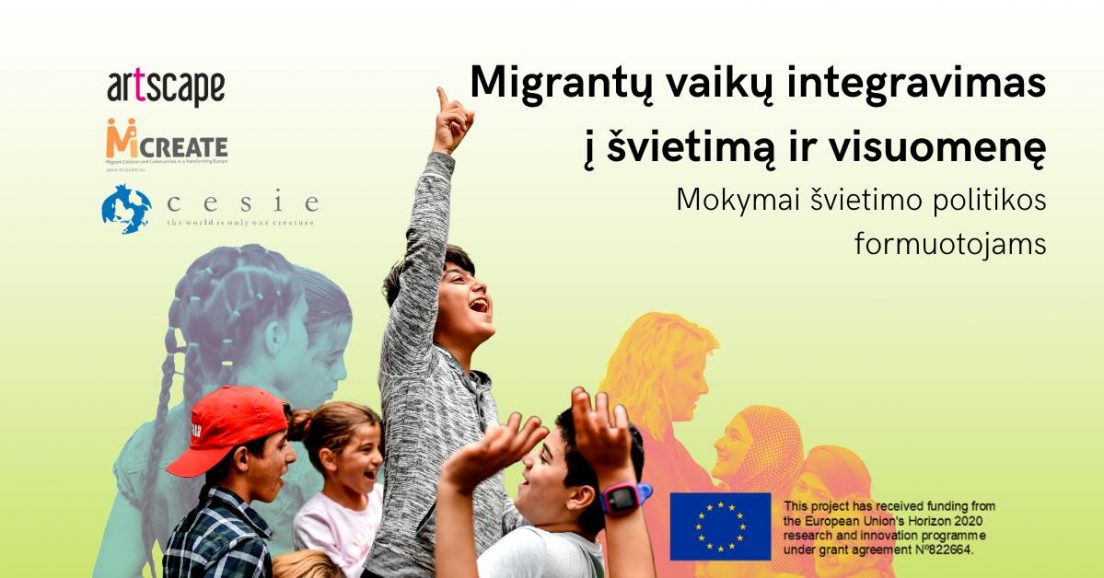Education policy makers and practitioners involved in the implementation of education are invited to the training course “Integrating migrant children into education and society”

The growing numbers of migrants, both globally and in Lithuania, create new challenges and opportunities for countries and societies. Educational policy makers and practitioners involved in the implementation of education are confronted with questions about the readiness of schools to integrate foreigners, the language barrier, children’s freedoms and rights, and many other related topics. These are the issues that the training “Integrating Migrant Children into Education and Society” on 24 and 25 May will bring together to discuss.
The training will enable you to better understand the value of migrant child-friendly education policies for society and to broaden your knowledge by sharing insights with colleagues working in the fields of education policy-making and the implementation of multicultural and global education. The training will be organised in a participatory manner. Each participant will bring knowledge and experience to the training as one of the resources of the training. The needs, questions, reflections, analyses, perspectives of the discussion will play an important role in pushing forward the process of integration of migrant children in education in Lithuania.
The meetings will consist of three main parts. In the first part, participants will discuss the challenges that integration processes of migrant children pose to the education system and the opportunities they could offer to the state and its society. Then, guidelines and recommendations based on the research carried out by the MiCreate project will be explored, focusing on the child’s well-being, the child’s relationship with the school community, the role of the family, language, diversity, transnationality, multilingualism, and the voice of the child. At the end of the training, the participants will be invited to discuss the application and potential role of these guidelines in the Lithuanian context.
Organised by “Artscape” and CESIE. “Artscape” has been working on the integration of foreigners in Lithuania since 2016: organising educational activities in reception centres for migrants; developing workshops where children from local communities create and collaborate with children from abroad; initiating awareness-raising initiatives to strengthen children’s self-confidence and create a positive image of a migrant.
CESIE is a European centre for research and initiatives in Italy, developing projects on human rights, equality, reforms in education, integration and art. “The MiCreate project aims to integrate autonomous spaces where migrant children can express their needs and experiences into social and political structures. The research carried out within the project allows to deepen the knowledge on the dynamics of integration in educational processes and to define guidelines that can guide policy makers and implementers in the design of evidence-based and child-centred educational programmes.
The training will take place at the Workland Lithuania Business Centre, 20 Gedimino Ave. The training is free of charge, but registration is required. More information and a registration form can be found on the “Artscape” Arts Agency Facebook page.
May 19, 2022